
The Enchanting Wilderness of Kakum National Park
Kakum National Park, located in the heart of Ghana, is an unmissable destination for nature lovers and adventure seekers. The park boasts over 145 square miles of dense tropical rainforest, offering visitors a glimpse into one of the richest ecosystems in West Africa. One of the park's most famous attractions is the Kakum Canopy Walkway, a series of suspended bridges that provide a bird’s-eye view of the lush forest and its diverse wildlife. In addition to the Canopy Walkway, Kakum National Park is home to a wide variety of flora and fauna. Visitors can expect to see elephants, antelopes, and over 250 species of birds. Guided tours are available, led by knowledgeable local guides who provide insights into the park's history, biodiversity, and conservation efforts. The park also offers hiking trails of varying difficulty, allowing visitors to explore the forest floor and discover hidden waterfalls and rare plants. Kakum National Park is not only a haven for wildlife but also a place of cultural significance. The park collaborates with nearby communities to promote sustainable tourism and preserve local traditions. Visitors can learn about the customs and lifestyles of the local people, adding a rich cultural layer to their adventure. Whether you're walking above the treetops or trekking through the undergrowth, Kakum National Park promises an unforgettable experience.
Local tips in Kakum National Park
- Visit early in the morning to experience the park's wildlife at its most active.
- Wear comfortable hiking shoes and bring insect repellent.
- Hire a local guide to gain deeper insights into the park's biodiversity and conservation efforts.
- Don't miss the canopy walkway for a unique perspective of the forest.
- Stop by the visitor center to learn about the park's history and pick up a map.
The Enchanting Wilderness of Kakum National Park
Kakum National Park, located in the heart of Ghana, is an unmissable destination for nature lovers and adventure seekers. The park boasts over 145 square miles of dense tropical rainforest, offering visitors a glimpse into one of the richest ecosystems in West Africa. One of the park's most famous attractions is the Kakum Canopy Walkway, a series of suspended bridges that provide a bird’s-eye view of the lush forest and its diverse wildlife. In addition to the Canopy Walkway, Kakum National Park is home to a wide variety of flora and fauna. Visitors can expect to see elephants, antelopes, and over 250 species of birds. Guided tours are available, led by knowledgeable local guides who provide insights into the park's history, biodiversity, and conservation efforts. The park also offers hiking trails of varying difficulty, allowing visitors to explore the forest floor and discover hidden waterfalls and rare plants. Kakum National Park is not only a haven for wildlife but also a place of cultural significance. The park collaborates with nearby communities to promote sustainable tourism and preserve local traditions. Visitors can learn about the customs and lifestyles of the local people, adding a rich cultural layer to their adventure. Whether you're walking above the treetops or trekking through the undergrowth, Kakum National Park promises an unforgettable experience.
When is the best time to go to Kakum National Park?
Iconic landmarks you can’t miss
Lancaster Accra
Discover a luxurious haven in Accra at Lancaster Accra, the perfect blend of comfort, convenience, and modern amenities.

Cape Coast Castle
Discover Cape Coast Castle: A historical landmark revealing Ghana's rich heritage and the impactful story of the transatlantic slave trade.
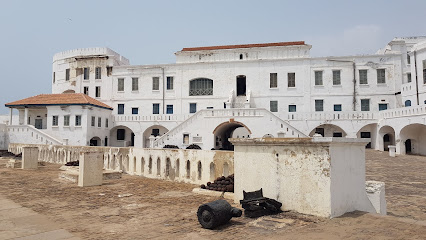
Kwame Nkrumah Memorial Park & Mausoleum
Explore the serene and historic Kwame Nkrumah Memorial Park & Mausoleum, a tribute to Ghana's founding father in Accra's lush landscapes.

Elmina Castle
Explore Elmina Castle, a UNESCO World Heritage Site, where history and breathtaking coastal views converge in Ghana's rich heritage.
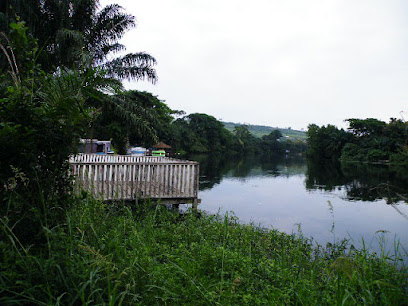
Coconut Grove Beach Resort
Discover the serene beauty of Coconut Grove Beach Resort in Elmina, Ghana, where luxury meets the tranquility of nature, perfect for your next getaway.

Labadi Beach
Experience the vibrant culture and stunning scenery of Labadi Beach in Accra, Ghana, where relaxation meets adventure in a tropical paradise.
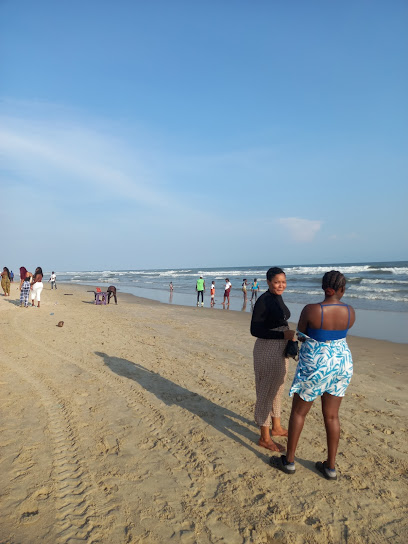
Mole National Park
Discover the wild beauty of Mole National Park, Ghana's premier destination for wildlife enthusiasts and nature lovers alike.
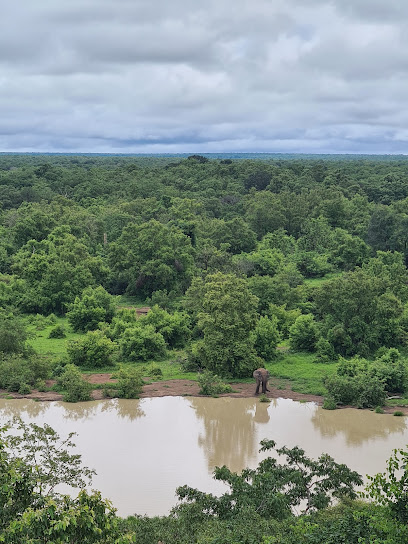
Boti Waterfalls
Explore the breathtaking beauty of Boti Waterfalls, a serene gem in Ghana perfect for nature lovers and adventure seekers alike. Experience its majestic cascades and lush surroundings.
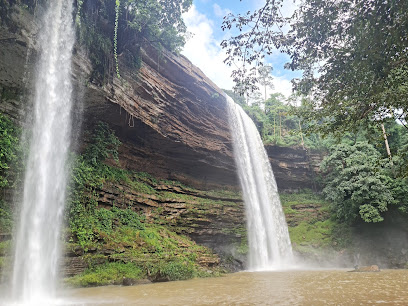
Kakum National Park Entrance Gate Ghana
Explore the breathtaking Kakum National Park in Ghana, featuring stunning landscapes, diverse wildlife, and the thrilling canopy walkway experience.
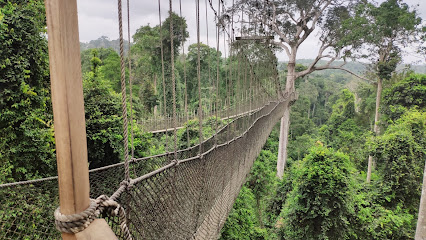
Bunso Eco Park (Bunso Arboretum)
Explore the lush landscapes and biodiversity of Bunso Eco Park, a tranquil paradise in Ghana perfect for nature lovers and family outings.
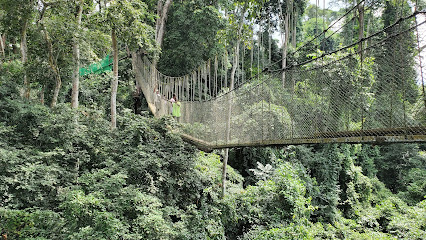
Bui National Park | TortoisePath.com
Explore the breathtaking beauty and diverse wildlife of Bui National Park, a must-visit destination in Ghana for nature enthusiasts and adventurers.
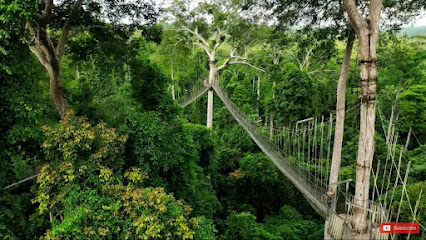
Boabeng Fiema Monkey Sanctuary
Explore the serene Boabeng Fiema Monkey Sanctuary in Ghana, where nature and wildlife come together for an unforgettable adventure.
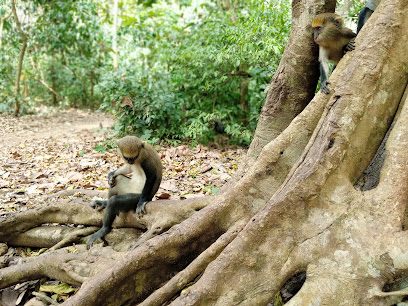
Pedu Junction
Discover the rich heritage of Pedu Junction, a historical landmark connecting you to Ghana's vibrant culture and significant historical sites.
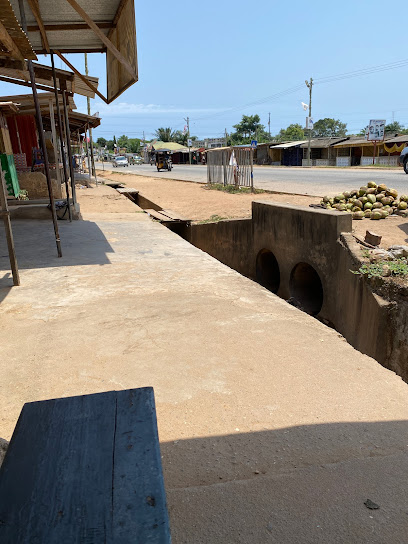
Rain Forest Lodge
Experience the tranquility of Rain Forest Lodge, your gateway to adventure and relaxation in Cape Coast, Ghana's breathtaking natural beauty.

Fort Metal Cross | TortoisePath.com
Explore the historical significance of Fort Metal Cross in Dixcove, a coastal fortress revealing Ghana's rich maritime past and stunning ocean views.
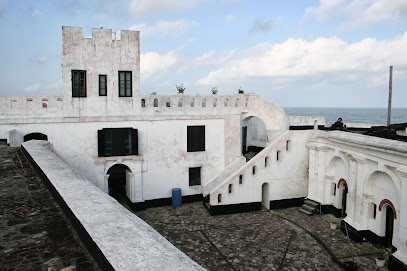
Unmissable attractions to see
Kakumdo
Explore the breathtaking beauty of Kakumdo, a premier hiking destination in Cape Coast, Ghana, known for its lush landscapes and diverse wildlife.
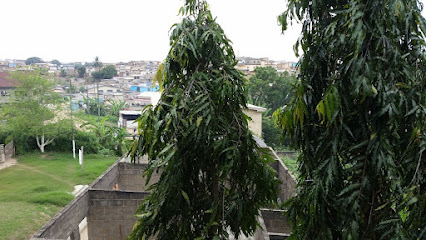
DUAKOR
Explore the serene landscapes and rich culture at DUAKOR, a remarkable tourist attraction in Cape Coast, Ghana.
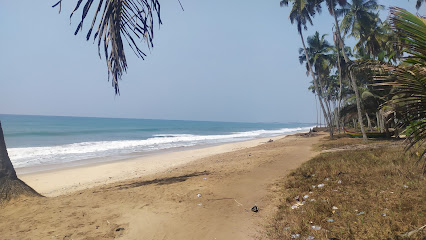
Kakum River for hiking
Explore the natural beauty of Kakum River, a premier hiking destination in Asebu, Ghana, offering scenic trails and vibrant wildlife.

Gha Adventures Travel and Tours
Explore Elmina's rich heritage and breathtaking landscapes with Gha Adventures Travel and Tours - your gateway to Ghana's hidden treasures.
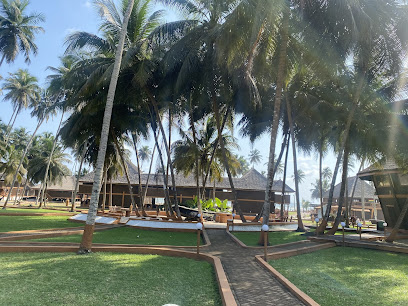
Esther's Joint
Experience authentic Ghanaian cuisine and culture at Esther's Joint in Cape Coast, a vibrant destination for tourists seeking local flavors and rich heritage.
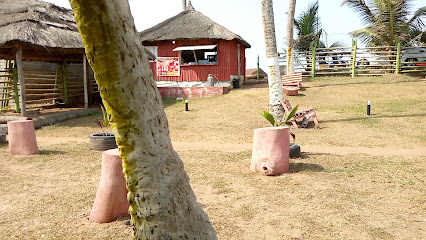
Authentic Africa Tours
Explore Ghana's rich culture and history with Authentic Africa Tours in Elmina, the gateway to unforgettable experiences and stunning landscapes.
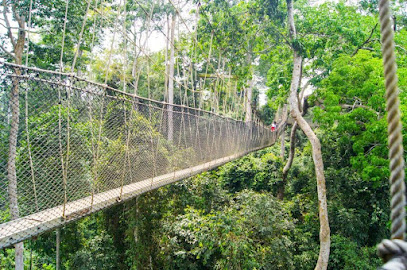
Cape coast
Experience the enchanting blend of nature and history at Cape Coast, Ghana's picturesque coastal destination with lush gardens and stunning beaches.
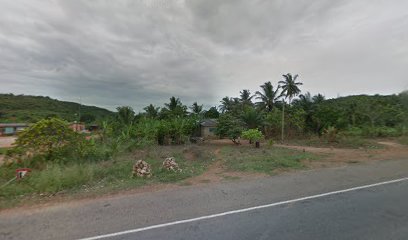
Parc national des passerelles
Discover the natural beauty and tranquility of Parc National des Passerelles in Odumase Abrafo, a perfect retreat for nature lovers and adventurers.

Zoological house
Experience the magic of wildlife at Zoological House in Cape Coast, where education meets conservation in a stunning natural setting.

K Dungeon Experience
Explore the K Dungeon Experience in Elmina, Ghana: A powerful journey through history, heritage, and the human spirit.

Essential places to dine
Ike’s Cafe and Grill
Experience authentic Ghanaian flavors at Ike's Cafe and Grill in Kumasi's vibrant cultural hub, perfect for food lovers seeking culinary delights.
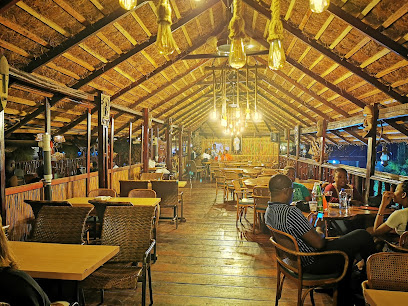
The Gold Coast Restaurant & Cocktail Bar
Discover exceptional seafood and cocktails at The Gold Coast Restaurant & Cocktail Bar in Accra—where taste meets vibrant atmosphere.
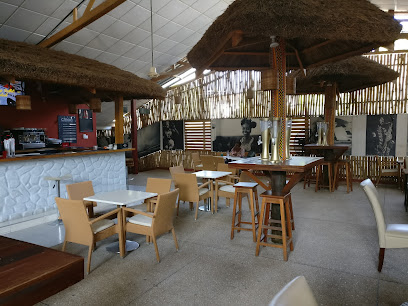
Sandbox Beach Club
Discover fun and flavor at Sandbox Beach Club in Accra - your go-to social hub for great food and vibrant beach vibes.
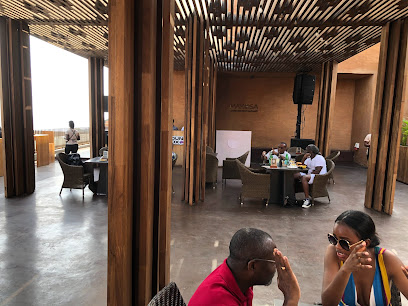
Becky Kay Restaurant and Bar
Discover culinary delights at Becky Kay Restaurant and Bar in Cape Coast – where local flavors meet coastal charm.
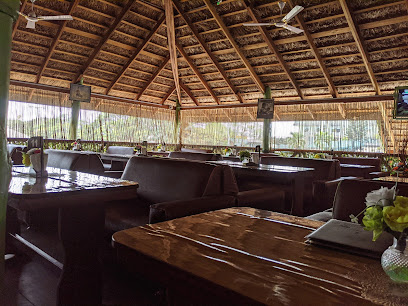
Da Breeze Bar & Restaurant
Experience coastal dining at Da Breeze Bar & Restaurant with delicious local dishes and stunning ocean views in Cape Coast.
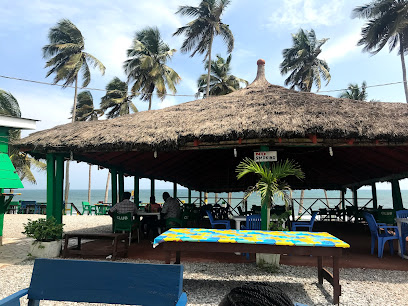
Sahara Spring Restaurant & Pub
Experience authentic Ghanaian cuisine at Sahara Spring Restaurant & Pub, where vibrant flavors meet warm hospitality in the heart of Cape Coast.
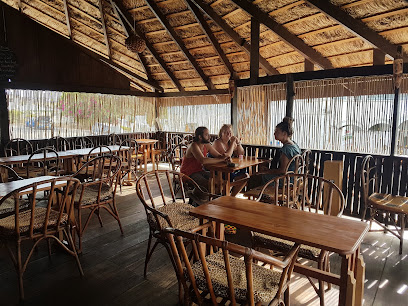
Sankofa Restaurant
Experience exquisite seafood dining at Sankofa Restaurant in Accra – where tradition meets modern culinary artistry.
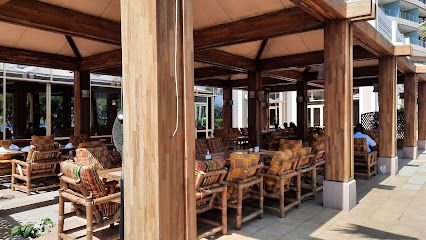
YAYA La Parisienne
Discover authentic French cuisine at YAYA La Parisienne in Accra - where delightful dishes meet exceptional service in a charming ambiance.
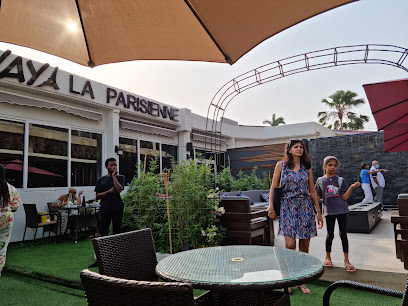
Mabel's Table
Experience authentic Ghanaian cuisine at Mabel's Table in Elmina – where local flavors meet warm hospitality.
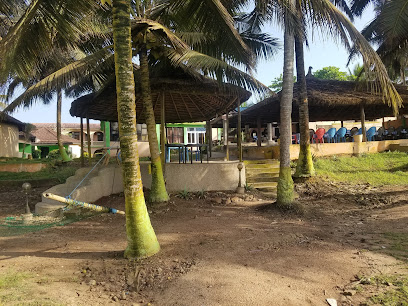
La Femme Restaurant
Experience the flavors of Ghana at La Femme Restaurant in Mankessim - where every meal is a celebration of culinary artistry.
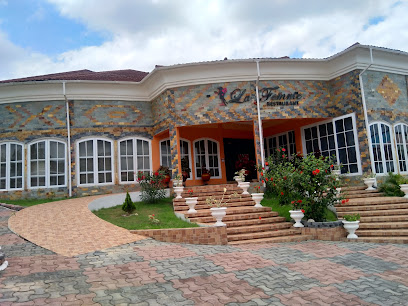
White Restaurant & Garden
Experience exquisite dining at White Restaurant & Garden in Accra - where local flavors meet international cuisine amidst beautiful surroundings.
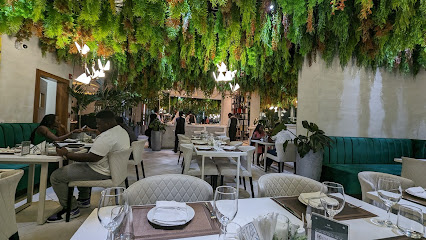
Tourispot Chop Bar
Experience authentic Ghanaian cuisine at Tourispot Chop Bar in Jukwa – where every meal tells a story.
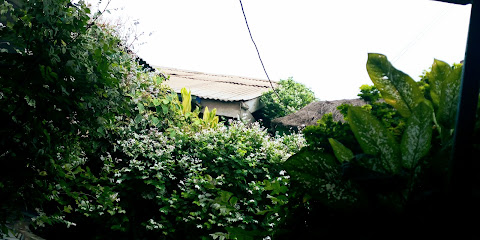
Lemon Lounge
Experience delectable dining at Lemon Lounge in Cape Coast – where local flavors meet international cuisine in a cozy setting.
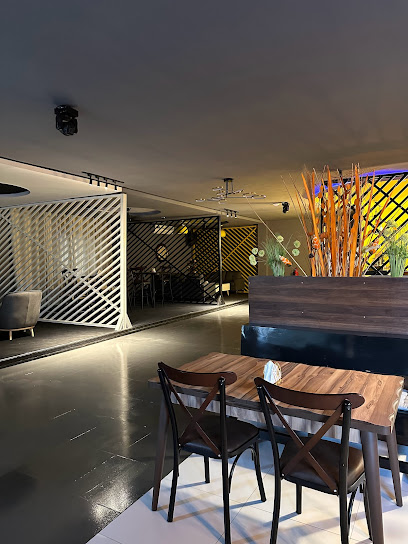
Me3 Cafe and Pastry Shop
Discover delightful pastries and aromatic coffee at Me3 Cafe and Pastry Shop in Kakumdu – a must-visit culinary gem for all travelers.

Peduase Chop House
Experience authentic Ghanaian cuisine surrounded by nature's beauty at Peduase Chop House in Aburi.
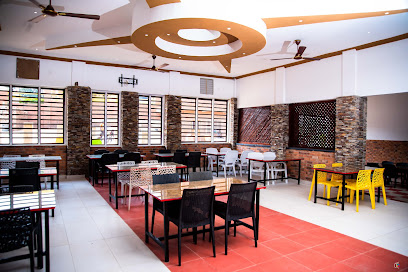
Markets, malls and hidden boutiques
Kakum National Park
Explore Kakum National Park: A breathtaking oasis of biodiversity and adventure in Ghana's lush rainforest.
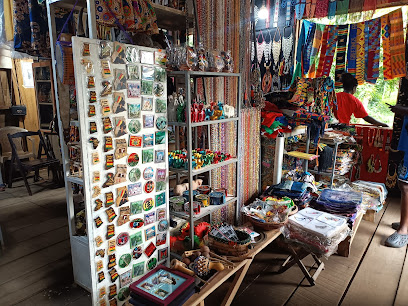
Kakum National Park Entrance Gate Ghana
Discover Kakum National Park: A Biodiverse Oasis with a Thrilling Canopy Walk in Ghana's Tropical Rainforest.
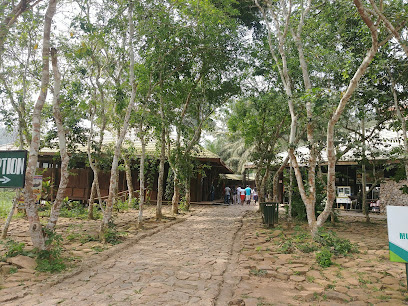
Kakum National Park Entrance
Explore the breathtaking beauty and rich biodiversity of Kakum National Park, a must-visit destination for nature lovers in Ghana.
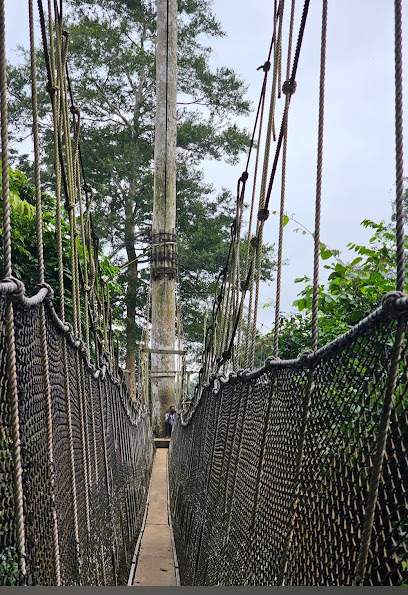
Ebubonko (Bonkus)
Discover the intriguing blend of history and shopping at Ebubonko (Bonkus) in Cape Coast, where every corner tells a story.
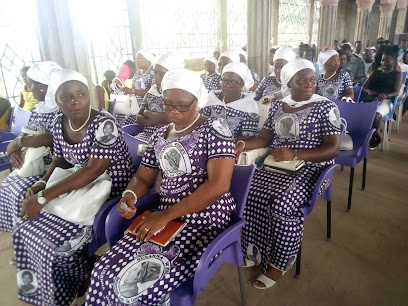
Ankaful Newsite Shop
Discover authentic local products at Ankaful Newsite Shop in Cape Coast, Ghana, a vibrant store reflecting the community's rich culture.
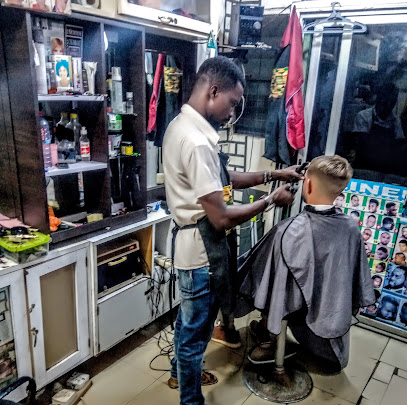
Abakrampa Melcom
Explore Abakrampa Melcom, a gourmet grocery store offering unique local and international flavors in the heart of Abakrampa, Ghana.

Oceans Fashion Boutique
Discover the vibrant styles of Oceans Fashion Boutique in Cape Coast, where local craftsmanship meets contemporary fashion.

BABYLAST COLLECTIBLES
Explore vibrant fashion and unique garments at BabyLast Collectibles in Cape Coast's bustling Kotokraba market, a true cultural gem.

Market Place
Explore the vibrant Market Place in Fanti Nyankumasi for unique crafts and home goods that reflect local culture and artistry.
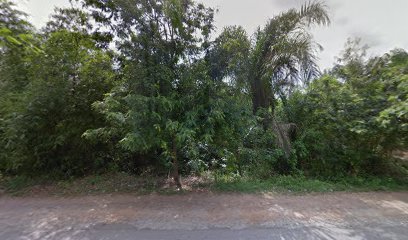
Richmonds Art Shop
Explore Richmond's Art Shop in Cape Coast for unique local crafts, art, and souvenirs that celebrate Ghana's vibrant culture.
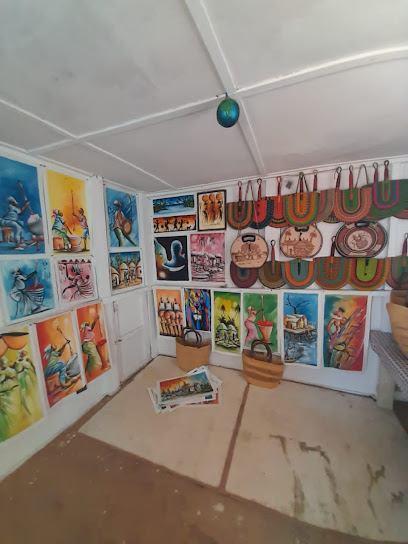
Precious Mom Enterprise
Explore Precious Mom Enterprise in Cape Coast for unique Ghanaian home goods and authentic souvenirs crafted with love.
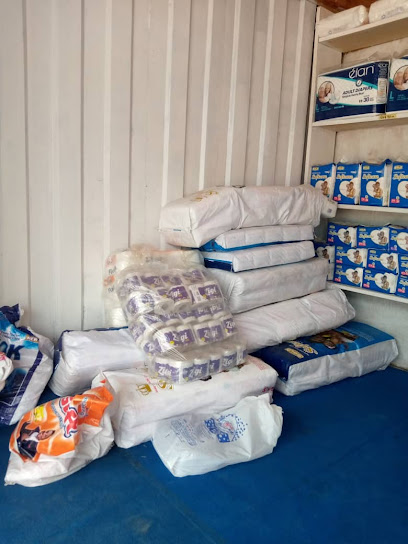
Inka Accessories Ghana
Discover unique fashion accessories and unwind at Inka Accessories Ghana, where local artistry meets vibrant social atmosphere in Cape Coast.
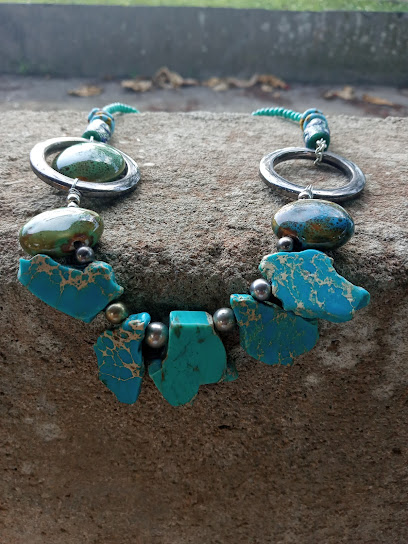
Fendormen stores
Explore Fendormen Stores for unique home goods showcasing local craftsmanship and culture, perfect souvenirs for your travels.
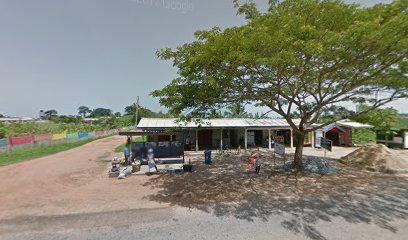
Genesis Grace Gift Shop
Explore the vibrant treasures of Genesis Grace Gift Shop in Cape Coast, where local crafts and unique gifts embody the essence of Ghanaian culture.

Antoinettes African Boutique
Explore authentic African fashion at Antoinette's Boutique, where every piece reflects the vibrant culture of Ghana.
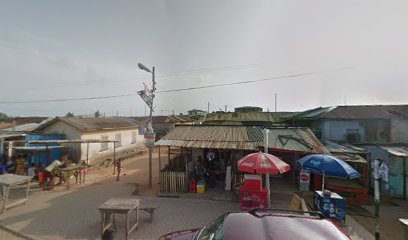
Essential bars & hidden hideouts
SHIPYARD Bar
Discover the lively SHIPYARD Bar in Cape Coast, where refreshing drinks and local culture come together for an unforgettable experience.
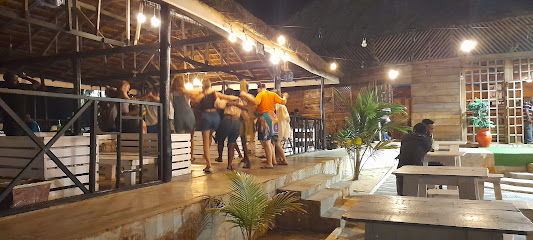
Jalc Pub and Restaurant
Experience vibrant nightlife and authentic Ghanaian cuisine at Jalc Pub and Restaurant in Cape Coast, a must-visit bar for tourists.
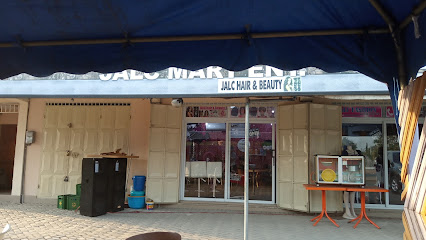
Rasta Bar
Experience the vibrant nightlife of Cape Coast at Rasta Bar, where refreshing drinks and local flavors meet a lively atmosphere.
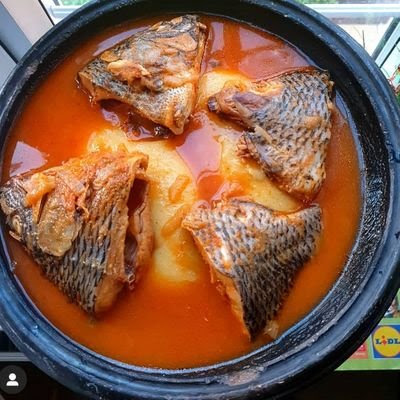
Top View Bar
Experience breathtaking views and refreshing drinks at Top View Bar in Elmina, the perfect retreat for travelers seeking relaxation and scenic beauty.
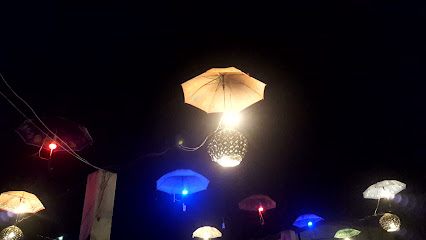
Auntie Mansah
Discover the vibrant nightlife and local flavors at Auntie Mansah, Cape Coast's favorite bar for tourists and locals alike.

KALAPS NATURAL FRUITS DRINK
Discover the refreshing taste of nature at Kalaps Natural Fruits Drink, a vibrant pub in Cape Coast serving delicious, wholesome fruit beverages.
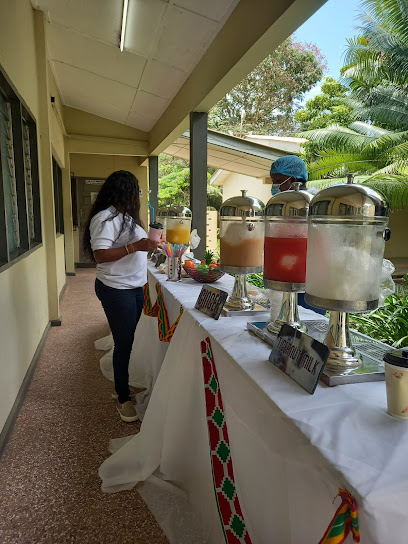
M. S. Pub
Discover the lively atmosphere of M. S. Pub in Cape Coast, where local flavors meet vibrant nightlife for an unforgettable experience.
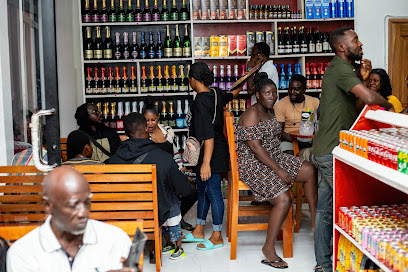
Coastal Pub
Discover the enchanting Coastal Pub in Anomabo, where delightful drinks meet breathtaking ocean views for an unforgettable experience.

EGYAWOM'S PUB & EATERY
Experience the lively atmosphere and local flavors at EGYAWOM'S PUB & EATERY, the perfect spot for relaxation and socializing in Wassa Atobiase.

Work & Happiness Bar
Experience the vibrant atmosphere of Elmina at the Work & Happiness Bar, where relaxation meets local culture in an unforgettable setting.

Pablo's Pub
Experience the vibrant nightlife at Pablo's Pub in Cape Coast, a local favorite for drinks and socializing in a lively atmosphere.
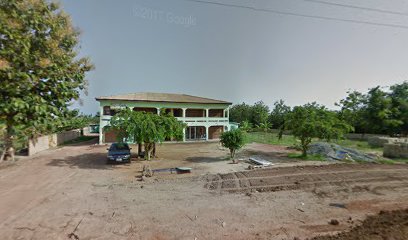
Gucvee Pub & Grill
Discover the vibrant atmosphere and local flavors at Gucvee Pub & Grill in Cape Coast, the perfect stop for food and fun.

Chills Pub
Discover the vibrant atmosphere of Chills Pub in Cape Coast, a perfect spot for relaxation and enjoyment with friends.

Bamboo Cabana
Discover the vibrant atmosphere of Bamboo Cabana in Heman Mpenkro, where local drinks and friendly vibes await every traveler.

Local Phrases about Kakum National Park
-
- HelloAane
[ah-neh] - GoodbyeBaada
[bah-dah] - YesEyi
[ay-yee] - NoDaabi
[dah-bee] - Please/You're welcomeMesere
[meh-seh-reh] - Thank youMedaase
[meh-dah-seh] - Excuse me/SorryAkpe
[ah-kpeh] - How are you?Ete sen?
[eh-teh sen] - Fine. And you?Eye. Na wo?
[ay-yeh. nah woh] - Do you speak English?Wo gbalɔ English?
[woh gah-bloh English] - I don't understandMenya
[mehn-yah]
- HelloAane
-
- I'd like to see the menu, pleaseMenyɛ menu, mesere
[mehn-yeh meh-noo, meh-seh-reh] - I don't eat meatMenya nɔnyɔ
[mehn-yah noh-nyoh] - Cheers!Afehyia pa
[ah-feh-yee-ah pah] - I would like to pay, pleaseMenya sika, mesere
[mehn-yah see-kah, meh-seh-reh]
- I'd like to see the menu, pleaseMenyɛ menu, mesere
-
- Help!Nnipa
[nee-pah] - Go away!Fi nipa
[fee nee-pah] - Call the Police!Kyerɛ polis
[chay-reh poh-lees] - Call a doctor!Kyerɛ dokita
[chay-reh doh-kee-tah] - I'm lostMenso me
[mehn-so meh] - I'm illMe nya
[meh nyah]
- Help!Nnipa
-
- I'd like to buy...Menya...
[mehn-yah...] - I'm just lookingMenya hɔ
[mehn-yah hoh] - How much is it?Ayi bɔ
[ah-yee boh] - That's too expensiveƐyɛ too bɔ
[eh-yeh too boh] - Can you lower the price?Wo pɛ sika yɛ bɔ?
[woh peh see-kah yeh boh]
- I'd like to buy...Menya...
-
- What time is it?Ɔdɔ bɛn?
[oh-doh behn] - It's one o'clockƆdɔ hɔ
[oh-doh hoh] - Half past (10)Nkɔtɔ hɔ (10)
[en-koh-toh hoh (doh)] - MorningAnɔpa
[ah-noh-pah] - AfternoonAwia
[ah-wee-ah] - EveningAnidaso
[ah-nee-dah-so] - YesterdayNontɔ
[non-toh] - TodayƆkyena
[oh-chay-nah] - TomorrowƆnam
[oh-nahm] - 1Nan
[nahn] - 2Ba
[bah] - 3Nsa
[nsah] - 4Nan
[nahn] - 5Nan
[nahn] - 6Nan
[nahn] - 7Nan
[nahn] - 8Nan
[nahn] - 9Nan
[nahn] - 10Nan
[nahn]
- What time is it?Ɔdɔ bɛn?
-
- Where's a/the...?Ɛhe na...
[eh-heh nah...] - What's the address?Ɛhe adiresi no?
[eh-heh ah-dee-reh-see noh] - Can you show me (on the map)?Wo pɛ sɛ wo bɛkum me?
[woh peh seh woh beh-koom meh] - When's the next (bus)?Ɛhe na ɔtɔ?
[eh-heh nah oh-toh] - A ticket (to ....)Nkɔtɔ (kɔ ....)
[en-koh-toh (koh ....)]
- Where's a/the...?Ɛhe na...
History of Kakum National Park
-
Kakum National Park, located in the Central Region of Ghana, was established in 1992. The park was created to protect the tropical rainforest and its rich biodiversity, which was under threat from logging and agricultural expansion. The park spans 375 square kilometers and is named after the Kakum River, which traverses the area.
-
Before the establishment of Kakum National Park, the area was inhabited by the Akan people, particularly the Fante and Assin ethnic groups. These communities depended on the forest for their livelihoods, utilizing the land for hunting, farming, and gathering medicinal plants. During the colonial period, the British administration also recognized the importance of the forest and attempted to regulate logging activities to some extent.
-
Kakum National Park is renowned for its rich biodiversity, including over 40 mammal species, 300 bird species, and numerous reptiles and amphibians. Conservation efforts have been spearheaded by both local and international organizations, with a focus on preserving the unique flora and fauna. The park is home to endangered species such as the Diana monkey, African elephant, and the bongo antelope.
-
One of the most iconic features of Kakum National Park is its canopy walkway, which was opened in 1995. The walkway, which stretches over 350 meters and is suspended 30 meters above the ground, was constructed with the help of two Canadian engineers. It provides a unique vantage point for visitors to observe the forest canopy and its inhabitants and has become a major tourist attraction.
-
The forest within Kakum National Park holds significant cultural importance for the local communities. Various sacred sites and groves exist within the park, which are used for traditional ceremonies and rituals. These cultural practices have contributed to the conservation of the forest, as certain areas are protected and left undisturbed out of respect for their spiritual significance.
-
Kakum National Park has become a hub for environmental education and research. The park hosts various educational programs for local schools and international visitors, aiming to raise awareness about the importance of conservation. Additionally, researchers from around the world conduct studies on the park's diverse ecosystems, contributing valuable knowledge to the global scientific community.
Kakum National Park Essentials
-
Kakum National Park is located in the Central Region of Ghana, approximately 33 kilometers from Cape Coast. The nearest international airport is Kotoka International Airport in Accra, about 170 kilometers away. From Accra, you can take a bus or hire a taxi to Cape Coast, and then take a local taxi or bus to the park. The journey from Accra to Cape Coast typically takes around 3 hours by road, and an additional 30-45 minutes from Cape Coast to Kakum National Park.
-
Within Kakum National Park, the main mode of transportation is walking, as the park's attractions are spread out over trails. For getting to and from the park, local taxis and buses are readily available. If you prefer a more comfortable option, consider hiring a private car or taxi for the day. Public transportation is inexpensive but can be crowded, so plan accordingly.
-
The official currency in Ghana is the Ghanaian Cedi (GHS). Credit cards are accepted in some hotels and restaurants in Cape Coast, but it is advisable to carry cash, especially for transactions within Kakum National Park. ATMs are available in Cape Coast, so it is best to withdraw sufficient cash before heading to the park. Make sure to have smaller denominations for entrance fees and local purchases.
-
Kakum National Park is generally safe for tourists. However, like any travel destination, it is advisable to take standard precautions. Avoid walking alone at night in unfamiliar areas and keep an eye on your belongings. Cape Coast, the nearest city, has areas with higher crime rates targeting tourists, so exercise caution, especially in crowded places and markets. Always use reputable transportation services.
-
In case of an emergency, dial 191 for police assistance and 193 for medical emergencies. The nearest medical facility is in Cape Coast, so it's wise to have travel insurance that covers medical emergencies. For minor health issues, there are pharmacies in Cape Coast where you can purchase over-the-counter medications. It is also recommended to keep a list of emergency contacts and local embassy information.
-
Fashion: Do wear comfortable and sturdy shoes suitable for hiking. Lightweight, breathable clothing is recommended due to the tropical climate. Avoid overly revealing clothing. Religion: Do respect local customs and traditions. It is advisable to dress modestly when visiting religious sites in nearby communities. Public Transport: Do be respectful and patient, as public transport can be crowded. Don't eat or drink on public transport. Greetings: Do greet people with a friendly 'hello' or 'akwaaba' (welcome in the local language). A handshake is also common. Eating & Drinking: Do try local delicacies and accept food offerings graciously. Don't refuse hospitality, as it is considered impolite.
-
To experience Kakum National Park like a local, consider visiting during the early morning when the park is less crowded and wildlife is more active. Engage with local guides who can provide in-depth knowledge about the flora and fauna. Don't miss the Canopy Walkway, which offers stunning views of the forest. Also, try local dishes like 'fufu' and 'jollof rice' at nearby eateries to get a taste of Ghanaian cuisine. For a unique experience, participate in a guided night walk to see nocturnal animals.
Trending Landmarks in Kakum National Park
-
Lancaster Accra
-
Cape Coast Castle
-
Kwame Nkrumah Memorial Park & Mausoleum
-
Elmina Castle
-
Coconut Grove Beach Resort
-
Labadi Beach
-
Mole National Park
-
Boti Waterfalls
-
Kakum National Park Entrance Gate Ghana
-
Bunso Eco Park (Bunso Arboretum)
-
Bui National Park | TortoisePath.com
-
Boabeng Fiema Monkey Sanctuary
-
Pedu Junction
-
Rain Forest Lodge
-
Fort Metal Cross | TortoisePath.com
Nearby Cities to Kakum National Park
-
Things To Do in Sekondi-Takoradi
-
Things To Do in Takoradi
-
Things To Do in Accra
-
Things To Do in Koforidua
-
Things To Do in Kumasi
-
Things To Do in Sunyani
-
Things To Do in Ho
-
Things To Do in Kpalimé
-
Things To Do in Abidjan
-
Things To Do in Lomé
-
Things To Do in Notse
-
Things To Do in Aneho
-
Things To Do in Atakpamé
-
Things To Do in Lokossa
-
Things To Do in Ouidah








